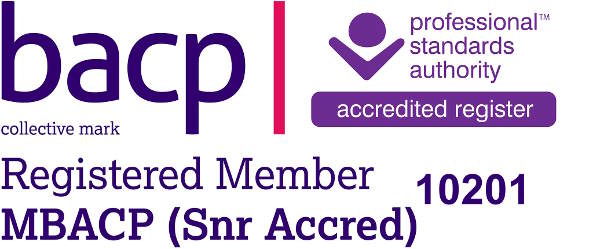Depression Counselling
At times we can all feel fatigued, energy less and slowed down. Depression symptoms can happen as a reaction to life stress, like when dealing with loss or adjustment - a bereavement, a separation - life transitions, like kids leaving home, menopause, retirement, job loss or other changes that are often beyond our control. Depression can be the result of long term stress or trying to deal with too much for too long. It can gradually creep up on us.
Depression tends to be more persistent than just a bad few days. Our energy is depleted. Sleep is affected – we get either too little or else we sleep too much but we still feel exhausted. Our appetite can be affected, Either we can under eat, with no desire or appetite for food, or over eat, with comfort food - like convenience food – that is saltier, higher fat, or sweeter. We might also find we’re drinking more alcohol or using other drugs to try to help sleep.
Some people describe depression as a “nothingness” feeling, when we don’t experience joy in the things we normally love. We feel demotivated and depleted. We find it harder to get things done as everything seems to take so much effort. Things tend to pile up, our “to do” list gets longer (which further demotivates us). We might find we withdraw from others at work or home. It may take longer to get things done so we may work through breaks or stay longer at work - pedalling harder and feeling like we’re staying still. We might find we cry more easily or we are more reactive than usual- things bug us more quickly. This only adds to the feelings of guilt and thoughts of self-criticism.
Depression is a vicious cycle of exhaustion, low motivation, critical self-talk, blame and shame. It can feel like we lose time, which is stolen by depression, and this means that we can see hours or days go by and have no idea where the time went. Depression can feel like an unwanted friend whispering lots of “shoulds” and complaining, ruminating and recriminating over things that are usually past and that we normally can’t change. It drains our motivation and energy and criticises us so making us feel failure and sometimes filling us with despair, leaving us feeling “not good enough”. It keeps repeating the cycle. Imagine if there were a real person in our lives, abusing us like this, we might take action but because the thoughts are in our own minds in our own voice we tend to accept and believe them.
Work with depression can take the form of CBT or an integrative approach. Some people love the logic of Cognitive Behaviour Therapy, others don’t, so we find a way of working together that works best for you.
Self-compassion is the feeling that is missing when living with depression so work in therapy aims to build this as well as “doing” work – like pacing and getting things done - the aim being to build in “wins” instead of accumulating even more perceived failure. We will focus in the “dids” not the “didn’ts”!
Therapy will aim to help you learn to look after yourself and become more compassionate to yourself. As depression affects your life and also the lives of those around you - like a ripple effect it will impact on your relationships with partners, family, friends and work colleagues. Working to change feeling depressed can help improve your relationships as well as how you feel.
Think of it like this - if we had broken both our legs we wouldn’t expect ourselves to climb Snowdon a week later! Even if we were an avid climber before we would likely acknowledge that healing takes time, we would expect to have a cast on and maybe rehabilitation or physio. We would start small and rebuild, giving credit for each and every step (knowing how much it took out of us to take each step).
In the same way in therapy, depression work, focuses on activity building but importantly, at a pace that is manageable. Therapeutic work also targets interpersonal connection - as we can feel very alone and isolated with depression. We would work together to rebuild and enhance a supportive coaching type mind-set instead of an abusive internal critic. The goal would usually be to build back to the things and people that help you to feel safe and loved, and to get back to the activities you enjoy - to feel yourself again.
Therapy can help you build new ways of thinking and develop patterns of behaving which can help you feel better about yourself instead of worse.
Therapeutic work with thoughts and thinking in depression can help you challenge beliefs that have been causing problems. Counselling for depression will suggest homework or tasks to do in between sessions to challenge and destroy those beliefs which keep you depressed and to prove that these are only tricky thoughts not absolute truths.
Therapeutic work with behaviour – “Doing” things daily that give us a sense of Achievement Connectivity and Enjoyment (ACEs) can really help our mood. Doing these at a pace that means we are moving forward – it doesn’t matter how much or little in a day - means we are helping ourselves feel better.
Please note severe depression may leave you feeling at risk or suicidal.
If you have suicidal thoughts or feel you can’t keep safe please reach out for immediate help. Call 999 or go straight to A & E or call your local mental health crisis team (England) or NHS 111 Option 2 0830-2300 (North Wales BCUHB).
Your GP is often your first point of contact – Contact your GP for an Urgent appointment or the out of hours GP.
Helplines
Samaritans – 116 123
CALL Helpline (Wales) – 0800132737
Mind Info line 0300 1233 393
Safety Plan
Take the Test
Click to download the PHQ9 Depression Test (Microsoft Word, 12kb)


